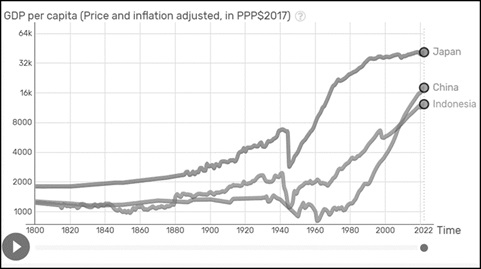Mathematical competencies in the digital era
DOI:
https://doi.org/10.23917/jramathedu.v8i4.3096Keywords:
mathematical competencies, digital era, school mathematicsAbstract
The paper begins with a discussion of the characteristics of digitization that influence school mathematics, its goals and practices: the digitization of everything, the invisibility of computation, the era of big data and information on everything, and changes in the social role of mathematics due to increased global competitiveness. This leads directly to Theme 1, where we discuss the diminished economic and personal value of the ability to carry out routine mathematical procedures from arithmetic to calculus. Two other themes are then discussed: the reorientation of school mathematics content to support students to solve real world problems, and the need for students to understand about how mathematics can provide insight into real world problems, even when they are not able to actually do this themselves. These themes are only three of the many aspects of mathematical competence in the digital era which might have been chosen for discussion.
References
H. Burkhardt, D. Pead and K. Stacey, Learning and Teaching for Mathematical Literacy. (Routledge, London,
.
K. Bates, & Usiskin, Z. (2016). Digital Curricula in School Mathematics. Information Age.
M. Brown, “The Cockcroft Report: Time past, time present and time future”. Mathematics Teaching, 243(1), 7–
R.U. Pierce and K. C. Stacey. Algebraic Insight: The Algebra Needed to Use Computer Algebra Systems. The
Mathematics Teacher , November 2002, Vol. 95, No. 8, pp. 622-627 Stable URL:
Stacey, K. & Wiliam, D. (2013) Technology and Assessment in Mathematics. In M. A. (Ken) Clements, Alan
Bishop, Christine Keitel, Jeremy Kilpatrick, and Frederick Leung (Eds) Third International Handbook of
Mathematics Education, (pp. 721 - 752). Springer.
Goos, M., Geiger, V., Dole, S., Forgasz, H., & Bennison, A. (2019). Numeracy across the curriculum: Researchbased strategies for enhancing teaching and learning. Allen & Unwin.
Shaughnessy, J. M. (2007). Research on statistical learning and reasoning. In F. K. Lester (Ed.), Second
handbook of research on mathematics teaching and learning (pp. 957–1009). Charlotte, NC: Information Age
Publishing.
Rosling, H., Rönnlund, A. R., & Rosling, O. (2016). Factfulness: Ten Reasons We’re Wrong about the World –
and Why.
Gal, I., Geiger, V. Welcome to the era of vague news: a study of the demands of statistical and mathematical
products in the COVID-19 pandemic media. Educ Stud Math 111, 5–28 (2022). https://doi.org/10.1007/s10649-
-10151-7
Helliwell, J. F., Layard, R., Sachs, J. D., Aknin, L. B., De Neve, J.-E., & Wang, S. (Eds.). (2023). World
Happiness Report 2023 (11th ed.). Sustainable Development Solutions Network

Downloads
Submitted
Published
How to Cite
Issue
Section
License
Copyright (c) 2024 Kaye Stacey

This work is licensed under a Creative Commons Attribution-NonCommercial 4.0 International License.


















